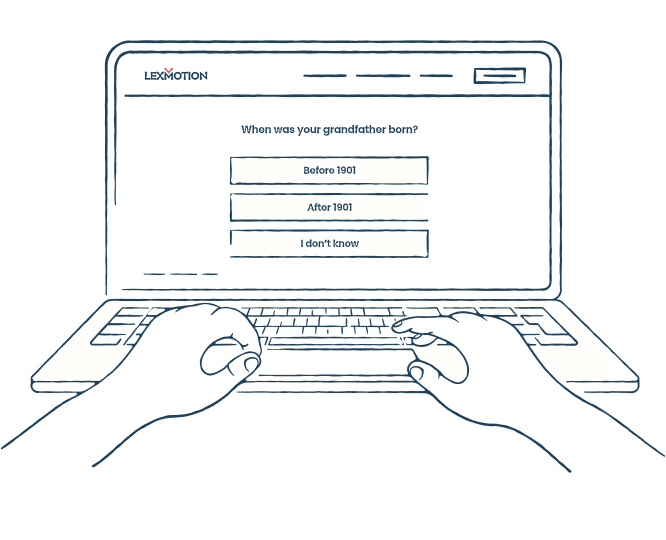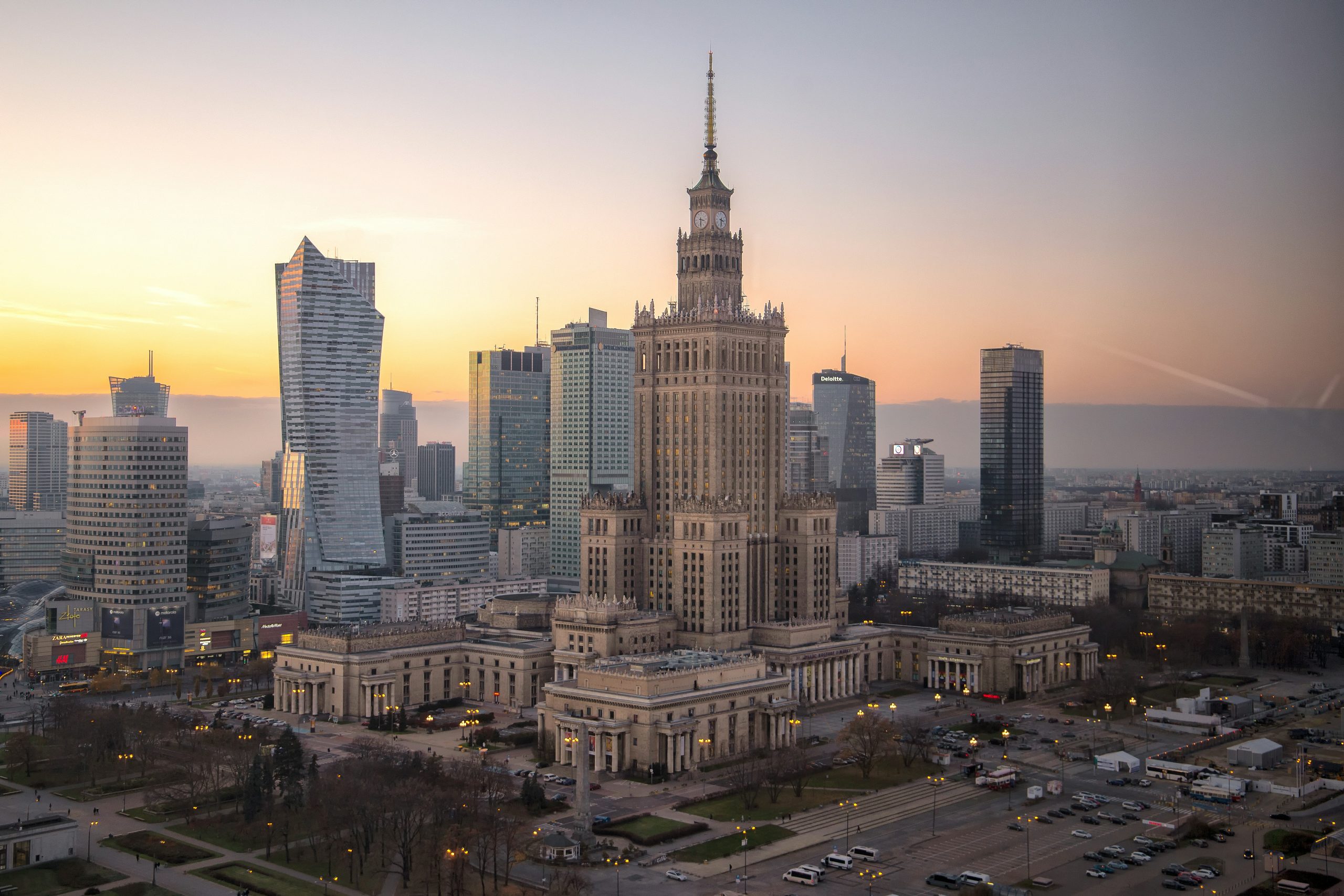Confirming Polish citizenship by descent is not just a formality; it’s a way to reconnect with your Polish roots and gain access to the many privileges that Polish citizenship, and subsequently Polish passports, offer in the European Union.
Polish law is based on the principle of jus sanguinis (the right of blood), which means that citizenship can be passed down through generations. If your grandparents were Polish, there’s a high probability that you may have the right to confirm your citizenship by descent.
However, in order to acquire Polish citizenship this way, you must meet specific conditions, such as documenting your Polish descent and proving that your Polish ancestor did not lose their Polish citizenship.
In this article, we will discuss the steps to take to determine whether you qualify and how Lexmotion can assist you throughout the process of acquiring Polish citizenship.
Key Takeaways
- Can I confirm Polish citizenship through my grandparents?
- What steps do I need to take to confirm my citizenship?
- How can we help you?
Can I Confirm Polish Citizenship Through My Grandparents?
Let’s start by identifying who is eligible to confirm Polish citizenship by descent.
Polish law recognizes citizenship through the principle of jus sanguinis (the right of blood), meaning that citizenship can be passed down through generations if one or more of an individual’s ancestors were Polish citizens.
In these cases, the Polish government considers such people as a Polish citizen from birth. Therefore, the process of confirming Polish citizenship by descent is the process of proving this ancestral Polish origin.
To claim citizenship on the basis of your Polish roots, certain conditions must be met:
- Your ancestor must have been a legal Polish citizen
Your grandfather or grandmother must have been recognized as a Polish citizen and resided in Poland after 1918.
- No loss of citizenship by your ancestor
Your ancestor must not have renounced their Polish citizenship or lost it by undertaking military service in a foreign army or holding a position in a foreign office.
However, there is a notable exception. If your Polish ancestor served in Allied military forces during World War II, such as with the US Army, they did not automatically lose their Polish citizenship, which is important for those who have such history in their Polish ancestry.
If your ancestor meets these conditions, you have a high likelihood of confirming Polish citizenship.

Check if you qualify for polish citizenship by descent



For more information on the eligibility criteria and who qualifies for Polish citizenship by descent, refer to the article Who is eligible for polish citizenship?
The Process of Obtaining Polish Citizenship by Descent
The process of confirming Polish citizenship can be divided into several key stages:
| The process of confirming Polish citizenship by descent | ||||
| ① | ② | ③ | ④ | ⑤ |
| 1/ Eligibility Validation | 2/ Document Search | 3/ Application Preparation and Submission | 4/ Application Review and Decision by Authorities | 5/ Citizenship Confirmation |
1/ Eligibility Validation
Ensure you meet all the required criteria. It’s important to carefully examine your family history, particularly whether your grandfather or grandmother was a Polish citizen and whether they retained their citizenship.
2/ Document Search
You’ll need documents proving your Polish ancestry and identity, such as birth certificates, marriage certificates, death certificates, and evidence of your ancestor’s Polish citizenship. The full, direct line of descent from your ancestor to yourself must be documented.
Note, however, that all non-Polish documents must be translated into Polish by a sworn translator recognized by Polish authorities. This includes your own documents. For example, as you likely don’t have a Polish birth certificate, this will need to be officially translated.
Key documents that may be required include:
- Birth and marriage certificates: These help prove the bloodline between your ancestors and yourself. In many cases, you will also need death and divorce certificates.
- Identity documents: Personal documents like identity cards, local registers, census data, etc., can assist in verifying your family’s history. These help confirm the identities of the family members mentioned in your application.
3/ Application Preparation and Submission
Once all the necessary documents are gathered and translated, the application form should be completed and submitted. Like birth certificates and other documents, this must also be done in the Polish language, although being able to speak Polish is not a prerequisite for being granted Polish citizenship by descent.
The application can be made through a Polish consulate.
4/ Application Review and Decision by Authorities
After submitting the complete application, you will need to be patient, as the process can take several months. During this time, the Polish authorities need to confirm your application and the official documents attached. If you are applying for Polish citizenship through grandparents or even a great grandparent, then this means that numerous identities need to be confirmed.
5/ Citizenship Confirmation
Once your application is approved, you will receive official confirmation of your Polish citizenship. This means you now have official citizenship status. Now that you have a legal Polish identity, you can apply for a Polish passport and enjoy the wider European Union benefits.
More information about the process can be found in the article What the Process of Polish Citizenship by Descent Looks Like.
Can I Have Dual Citizenship?
Yes, Polish law allows you to hold dual citizenship, granting you full citizen rights and obligations.
Many people worldwide with Polish heritage enjoy the benefits of holding two or more nationalities – their original citizenship and Polish citizenship. Poland, notably, allows multiple citizenships, meaning you can hold a Polish passport alongside others you may already have.
It’s important to emphasize that confirming Polish citizenship does not require renouncing any other citizenships you hold. This also means you can enjoy the benefits of EU citizenship alongside the benefits of your own country and existing nationality.
For more details on the benefits of dual citizenship, read the article Dual Citizenship – Is It Allowed?
How Long Does the Citizenship Confirmation Process Take?
The process of applying for Polish citizenship by descent typically takes 12 to 18 months, but this timeframe can vary depending on the specific case and its complexity.
The more complicated the case and the more documents that need to be gathered, the longer the process may take. Likewise, the more the Polish government needs to review, and thus, it takes longer to confirm citizenship.
For more details on why the process takes time and what factors affect it, refer to How long does it take to confirm Polish citizenship and passport?
How Can You Get a Polish Passport?
Once you have officially received Polish citizen status, a natural next step is to apply for a Polish passport.
A Polish passport opens many doors, including the ability to travel freely within the Schengen zone and access over 176 countries worldwide. In many cases, visa free access is available for Polish citizens.
To apply for a Polish passport, you first need to gain Polish citizenship. Only then can you then submit the appropriate application.
To complete the application, you will need:
- Confirmation of Polish citizenship: Simply presenting documents of your Polish ancestors (e.g., grandparents) at a nearest Polish consulate is not enough—you must obtain official confirmation of your own Polish citizenship.
- Birth certificate: If you were born outside of Poland, your birth certificate will need to be translated and registered in Poland.
- Marriage certificate (optional): If you are married, this document must also be registered. If divorced, a divorce certificate must also be registered. Like Polish birth certificates, this needs to be translated and registered with the Polish authorities.
- PESEL number: PESEL, the Polish personal identification number, is required when applying for a passport and will be automatically assigned during the application process.
For more detailed information on how to obtain a Polish passport, check out the article How to Get a Polish Passport.
Summary
To summarize, if you can confirm your Polish grandparents citizenship, there’s a strong chance that you can confirm your Polish citizenship by descent.
The key requirement is to document that your ancestors were Polish citizens and didn’t lose their citizenship. This includes confirming a direct line of descent from at least one of your Polish ancestors, such as through parents or grandparents.
It’s important to remember that your ancestors must have been considered Polish citizens. If you don’t have the necessary documents to prove their citizenship, our team can help you locate these in Polish archives. There are various ways to document your ancestor’s citizenship, and our role is to thoroughly verify and validate them.
Additionally, your ancestor didn’t necessarily need to reside in Poland after 1920. What’s important is to prove their right to citizenship under the 1920 law. Documents may show permanent settlement or registration, which we will help you identify.
Lexmotion experts provide full support at every stage of the process. After receiving a positive result from our free eligibility quiz, we will create a personalized offer and guide you through the entire process of confirming Polish citizenship by descent, ensuring every detail is taken care of.







